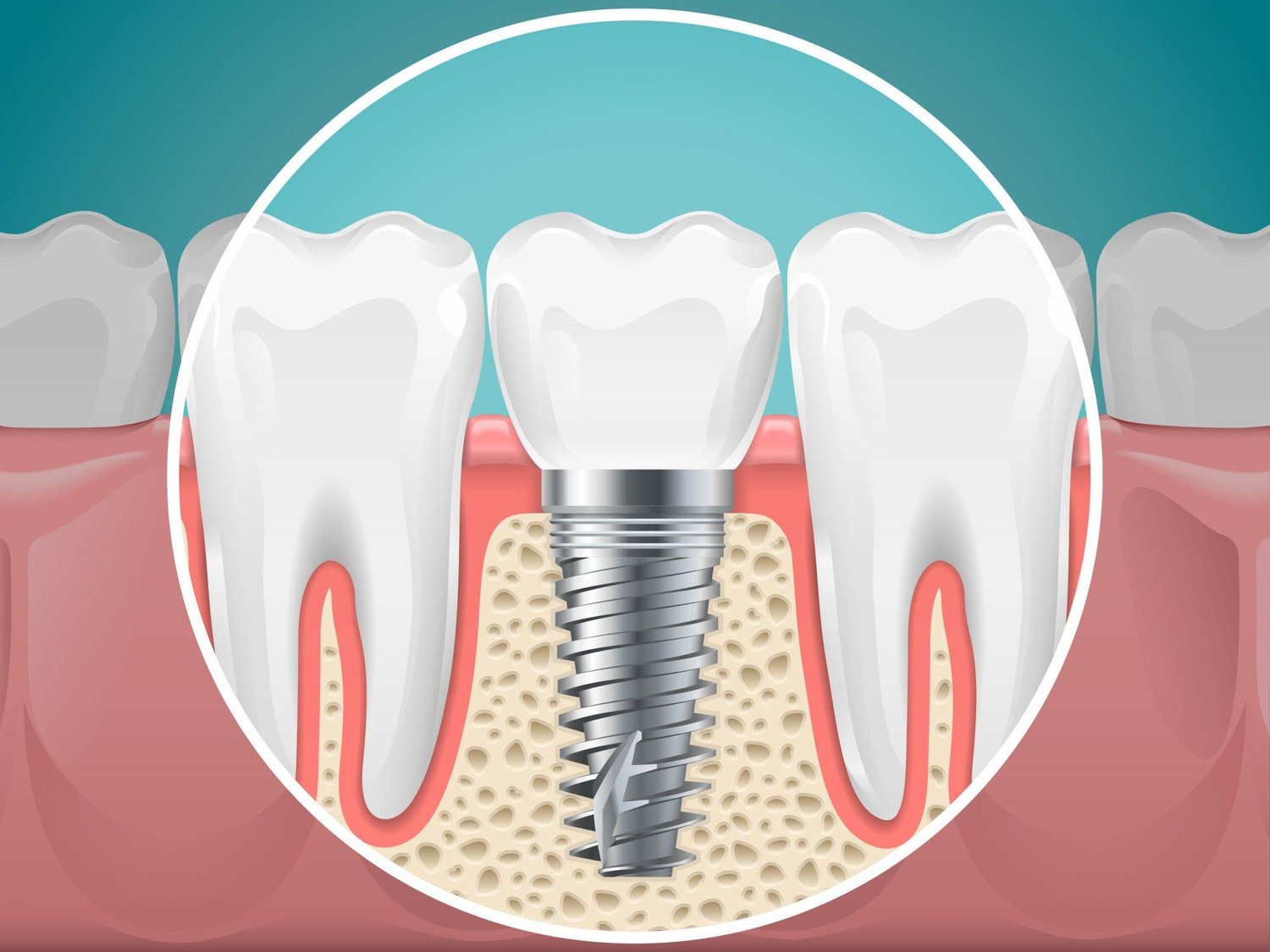Dental Implants: What You Need to Know Before Getting One

Strong 8k brings an ultra-HD IPTV experience to your living room and your pocket.
Missing teeth can affect more than just your appearance—they can impact your speech, ability to chew, and overall oral health. That’s why more and more people are turning to dental implants as a long-term solution. If you're thinking about getting dental implants, there are several important things to consider before moving forward.
In this blog, we’ll cover everything you need to know—from what dental implants are and how they work, to the benefits, potential risks, and what to expect during the process.
What Are Dental Implants?
A dental implant is a small titanium post that is surgically placed into your jawbone to replace the root of a missing tooth. Once the implant has bonded with your bone, a custom-made crown is attached, creating a natural-looking and functional tooth replacement.
Dental implants can replace a single missing tooth, multiple teeth, or even support full dentures. They’re designed to last for decades with proper care, making them a popular and permanent solution.
Benefits of Dental Implants
There are many reasons why dental implants are often considered the best choice for replacing missing teeth:
1. Natural Look and Feel
Implants are designed to mimic the appearance and function of natural teeth. Most people won’t even be able to tell the difference.
2. Long-Lasting Solution
With good oral hygiene, dental implants can last 20 years or more—often a lifetime.
3. Improved Oral Health
Unlike dental bridges, implants don’t require grinding down adjacent healthy teeth. They also help preserve bone density by stimulating the jawbone.
4. Enhanced Comfort and Function
Implants feel more secure than removable dentures, which can slip or cause sore spots. They also restore full chewing power, allowing you to eat all your favorite foods.
5. Boosted Confidence
A complete, healthy smile can make a big difference in how you feel about yourself and interact with others.
Are You a Good Candidate?
Not everyone is immediately eligible for dental implants. Here are a few conditions that make someone a good candidate:
Healthy gums and adequate bone density in the jaw to support the implant
No untreated chronic conditions such as uncontrolled diabetes or gum disease
Non-smoker or willing to quit, as smoking can interfere with healing
Commitment to good oral hygiene and regular dental visits
If your jawbone isn’t dense enough, procedures like bone grafting can often help prepare the area for implants.
The Dental Implant Process: Step by Step
The implant process typically takes several months and involves multiple stages:
1. Initial Consultation
Your dentist will review your medical history, take X-rays or 3D scans, and evaluate your jawbone. They’ll discuss your goals and determine if you're a suitable candidate.
2. Tooth Extraction (if necessary)
If the damaged tooth is still in place, it will be removed. Sometimes, an implant can be placed on the same day.
3. Bone Grafting (if needed)
If your jawbone isn't thick enough or is too soft, a bone graft may be needed. This can add healing time, usually several weeks to a few months.
4. Implant Placement
During a minor surgical procedure, the implant is placed into the jawbone. This is typically done under local anesthesia.
5. Healing and Osseointegration
Over the next 3–6 months, the implant fuses with the jawbone in a process called osseointegration. This creates a solid foundation.
6. Abutment Placement
Once healing is complete, a small connector piece called an abutment is attached to the implant. This holds the crown in place.
7. Final Crown Placement
A custom-made crown is created to match the color and shape of your natural teeth. It's attached to the abutment, completing your new smile.
Potential Risks and Complications
Dental implants have a very high success rate—typically over 95%. However, as with any surgical procedure, there are some risks to consider:
Infection at the implant site
Injury to nearby teeth or nerves
Sinus issues if implants are placed in the upper jaw
Implant failure due to insufficient bone or poor healing
Choosing an experienced implant dentist greatly reduces these risks. Following all post-op instructions is also essential for a successful outcome.
Cost and Insurance Coverage
Dental implants can be more expensive than other tooth replacement options. Costs vary depending on the number of implants, the need for additional procedures like grafting, and your geographic location.
While most dental insurance plans don’t cover the full cost of implants, some may cover parts of the procedure, such as extractions or crowns. Financing options and dental savings plans may also be available through your dentist’s office.
Aftercare and Maintenance
Taking care of your dental implants is similar to caring for natural teeth:
Brush twice a day and floss daily
Use a soft toothbrush and non-abrasive toothpaste
Visit your dentist regularly for check-ups and cleanings
Avoid chewing on hard objects like ice or pens
Good oral hygiene and lifestyle habits will help your implants last for many years to come.
Dental implants are a durable, natural-looking solution for missing teeth. While the process takes time and can involve an upfront investment, the long-term benefits for your oral health and confidence are well worth it.
If you're considering dental implants in Chembur, consult with a qualified implant dentist at Dr. Manisha Shah's Dental Clinic to discuss your options, evaluate your oral health, and determine the best treatment plan tailored to your needs.
Note: IndiBlogHub features both user-submitted and editorial content. We do not verify third-party contributions. Read our Disclaimer and Privacy Policyfor details.



